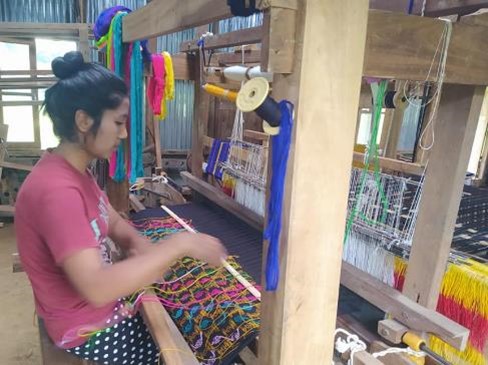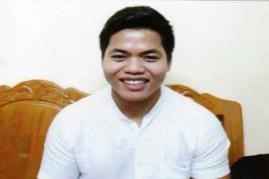Education
Our goals
- For every school-aged child to have equal access to quality education and be enrolled in school
- For every community to invest in education as a tool to develop change-makers that can build peace and sustainable development in their communities
- For youth and adults to have access to training that can open up new income generation opportunities and improve their food security
The challenges
Lack of educational investment has fed into a cycle of poverty and hopelessness that is seen across Myanmar. In Chin State, many children drop out of school early, and among the few who complete high school, less than 20% manage to pass the final matriculation exams. Children from rural ethnic communities face difficulties accessing education due to geographic, linguistic, and cost barriers. For those children who are able to access education, outdated curriculum content, ineffective teaching methods and the lack of skilled and educated local leaders often stand in the way of their success. Currently, success in education depends heavily on one’s family background and motivation. The lack of well-educated young people in this region is a lost opportunity to produce potential future leaders and change-makers who can help raise their communities out of poverty. And for adults who never had the opportunity for a good education as children, few opportunities for skills development are currently available in the region.
Our response
We promote sustainable education by facilitating long-term healthy relationship between duty bearers, teachers, parents and students in the community. We also provide learning opportunities for farmers, women and youth, to open up new possibilities for their future.
Main education activities
For children and youth:
- Promoting community ownership of quality primary and secondary education, by encouraging every community to:
- Contribute to an education fund
- Nominate and support two Ambassadors for Sustainable Education each year (1 boy and 1 girl)
- Have a set of goals for School Jubilee years that endure beyond school leadership changes
- Improving the quality of teaching by providing teaching aids and books
- Mobilising the community to create safer, healthier school facilities and providing material inputs for this, including:
- solar lights
- water supply and storage tanks
- fencing
- Carrying out education campaigns, campaigns on 3-D-Free Communities (preventing Dropouts, Debt, and Drug use), and celebrating important international awareness days
Awarding outstanding students and providing scholarships for post-secondary study – with the long-term ambition of raising up future leaders.

Achievements in Education
- 2,870 students accessing improved education
- 25 schools equipped with teaching materials and improved facilities
- 19 communities investing in education and working towards a set of education goals
- 40 Ambassadors for Sustainable Education
- 60 Adults for livelihood skill
- Establishment of Come School in Lailenpi, giving hundreds of students a boost to their education through extra tutoring
- 30 scholarships given for post-secondary education
- Establishment of the Continuing Education Centre in Sabawngpi, providing adult skills training


For youth and adults:
- Operating the ‘Continuing Education Centre’ – founded in Sabawngpi in 2009 as TSD’s ‘Rural Research and Skill Training Centre’, and providing training in:
- Kitchen gardening and food processing
- Organic upland agriculture methods
- Animal husbandry
- Tailoring and weaving
- Brick making
- Carpentry
- Family Management
The centre also aims to document rural life skills in printed form and promote model trainees as an example to others of ways to initiate new forms of livelihoods and improve agricultural methods.
- See also other capacity-building opportunities that TSD provides for adults as part of its Food security and Inclusion

“I always try to motivate other students to think big and work hard consistently to achieve their goal. I coach them to select the right subject at the right time for the right job, especially those who come from rural communities. I am so happy whenever I am able to share my pocket money to help other students pay their education fee”.
~ Htaung Hayar(an Ambassador for Sustainable Education since 2018, Final year of Bachelor of Medicine and Bachelor of Surgery)


TSD’s education programme contributes to the following SDG targets for education:
- 4.1 – ensuring that all girls and boys complete free, equitable and quality primary and secondary education
- 4.4 – increase the number of youth and adults who have relevant skills, including technical and vocational skills, for employment, decent jobs, and entrepreneurship
- 4.5 – eliminate gender disparities in education and ensure equal access to all levels of education for the vulnerable, including persons with disabilities, indigenous peoples, and children in vulnerable situations
- 4.7 – ensure that all learners acquire the knowledge and skills needed to promote sustainable development
- 4.A – upgrade education facilities
- 4.B – expand the number of scholarships available
